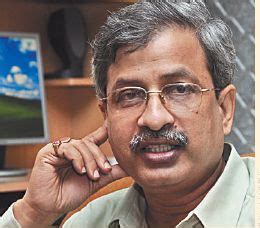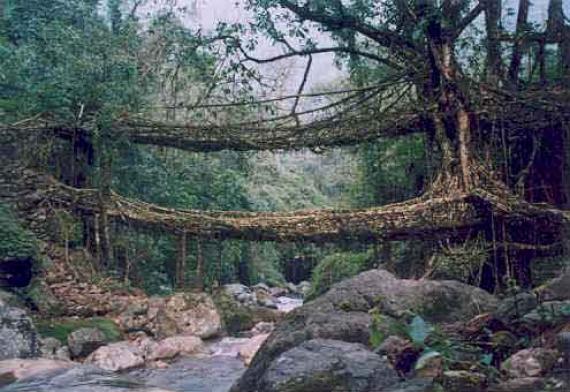This talk dwells upon different research paradigms such as Hypothesis-oriented, Assessment-oriented, Action-oriented, Systems-oriented, Social adaptive (similar to V2V) frameworks. The motivation behind this talk is to discuss research that goes beyond the conventionally defined domains of science; the relevance of non-expert based knowledge to offer solutions to complex social and environmental problems, and the research that can bring significant impacts on people’s behavior by small endeavors.

The implications of the novel and non-traditional research framework for vulnerability to viability transitions will be discussed as a way forward for building resilient communities in a variety of resource contexts. The emphasis is laid primarily on exploratory research in resource constrained contexts with a focus on what happens in 450,000+ villages in India, where people survive and even thrive in adverse circumstances and where collective identity and common goals are far more important than individualism.
Dr. Mandal shows how institutional memory, mutual valuing and shared experience are key ingredients of frugal innovation and that people in the villages are adapted to transformation as a way to eke out a living. Among the examples to illustrate the point he referred to the use of roots of live rubber trees in terrains, where it would be too expensive and complicated to build conventional bridges of steel or concrete. These bridges are very sturdy and functional for the needs of the villagers.

He argues that investigating their mode of garnering collective intelligence, creation of solutions through shared inputs and changed behaviours requires a flexible non-conventional research framework that can not be pre-planned in detail. He illustrates with a number of other examples how villagers develop inexpensive solutions with locally available resources that do not necessarily seek perfection, but must be good enough for their purpose. The solutions they develop are responses to everyday challenges. They deliver more value at lower cost and level inequality. By creating new relationships and enhance the local society’s capacity to act they bring greater autonomy and ultimately more happy lives.
While solutions are site- and community-adapted, many may still scale and enable interesting solutions elswhere as well. This is where exploratory research has a great role to play.
Check out the full lecture and Q&A session here.
Accademia della Pesca Artigianale
- Pescatori artigianali e ambientalisti ripensano insieme la pesca
- Make Fishing Fair
- La pesca eccessiva straniera alimenta la mortale crisi migratoria del Senegal verso l’Europa
- Mundus maris at MARE 2025
- I pescatori artigianali al centro della governance dell’oceano e della sicurezza alimentare
- Make Fishing Fair in the EU, 25 March 2025
- Human – Biodiversity Relationships Across Scales
- World Fisheries Day, 21 November 2024, celebrated in Nigeria
- Mundus maris partecipa al 2024 World Fisheries Day organizzato dalla Canoe and Fishing Gear Association del Ghana (CaFGOAG).
- Mundus maris contribution to the UNOC3 public consultation
- Vertice sulla pesca artigianale a Roma, 5-7 luglio 2024
- Regional Symposium on European Small-Scale Fisheries, Larnaca, Cyprus, 1-3 July 2024
- Riunione di emergenza sulla pesca nel Baltico, Bruxelles, 26 giugno 2024
- Ambivalent role of Market and Technology in the Transitions from Vulnerability to Viability: Nexus in Senegal SSF
- Shell fisheries as stewardship for mangroves
- Edizione africana del 4WSFC a Cape Town, 21-23/11/22
- Giornata mondiale della pesca, 21 novembre 2023
- Webinar: Nigeria’s Fisheries challenges and opportunities
- Presentazione della FishBase app al Symposium di Tervuren
- Convegno MARE sulla paura blu – Mundus maris riflette
- The Transition From Vulnerability to Viability Through Illuminating Hidden Harvests, 26 May 2023
- Sessioni EGU focalizzate su geoetica e apprendimento congiunto
- Solidarietà con i pescatori artigianali in Senegal e Mauritania
- The legal instruments for the development of sustainable small-scale fisheries governance in Nigeria, 31 March 2023
- Tools for Gender Analysis: Understanding Vulnerability and Empowerment, 17 February 2023
- Community resilience: A framework for non-traditional field research, 27 January 2023
- Sustainability at scale – V2V November webinar
- Edizione Europea del 4WSFC in Malta, 12-14 Settembre 2022
- Mundus maris contribuisce all’SSF Summit in Roma
- Donne commercianti di pesce a Yoff e Hann in Senegal, vittime o artefici del loro destino?
- L’Accademia continua il suo lavoro a Yoff
- Illuminating the Hidden Harvest – a snapshot
- Virtual launch event FAO: International Year of Artisanal Fisheries and Aquaculture
- The Small-Scale Fisheries Academy as a source of operational support to PA Guidelines
- Congresso mondiale della pesca, Adelaide, 20-24 settembre
- Mundus maris sostiene la lotta di Paolo il pescatore, in Toscana, Italia
- Catching-up – SSF Academy Yoff, 27 Febr. 2021
- Rafforzare le capacità degli attori per una pesca sostenibile su piccola scala
- Sperimentazione dei metodi di formazione durante la fase pilota dell’Accademia SSF in Senegal
- Una prima assoluta: il lancio di un’Accademia della Pesca su Piccola Scala in Senegal
